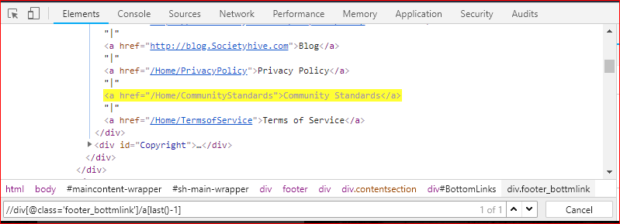

So, whether or not your tests are simply integration or e2e (whatever that means in your world), then create the workflows. So, if you are managing to click a button in your workflow that is supposed to get your to a final page, then have your method return an instance of that page class (for final page). Now, the workflows can manage the relationship with those page classes. Why this is relevant: I see you are creating page classes, so you have the obvious abstraction. So, instead of a test running all the actions (and them living and dying within the bounds of your test method), you create a reusable method that can be called, parameterized and modified when needed.

What I mean by that is essentially creating an abstraction of nearly anything your test might do. Whenever I have done that, I usually get a lot of return on that investment. Well, I am a big fan of creating workflows for your test automation.
XPATH FOR TEXT FULL
The test data source is linked to the test project, not the application code, so it doesn't slow the build and check in/check out process for the application code (and you are running the unit tests for every full build, right?) This can be a big issue for large and/or complex applications. You don't have to link test data to the application code. You can shortcut if the test code is part of the application project - and those shortcuts can mean invalid tests. Because the test codebase is in a different project, you have to perform all the initialization, setup, and teardown. If you have a separate testing project in the solution, this isn't an issue - but you also get to keep the convenience of matched check ins, because it's all in the version control system, right? No need to worry about compile-time flags - it's remarkably easy to miss adding a compile-time flag to keep your test code out of your production build. You want your unit tests to catch issues with initialization, global variables, and scoping, which is more difficult if they're part of the main code base (depending, of course, on the language you're using). Some of the reasons for the separation are:

The approach I've seen most often is to have the unit tests as a separate project in the application solution, so they can be run against production code as part of the build process, but are not included in the production code.


 0 kommentar(er)
0 kommentar(er)
